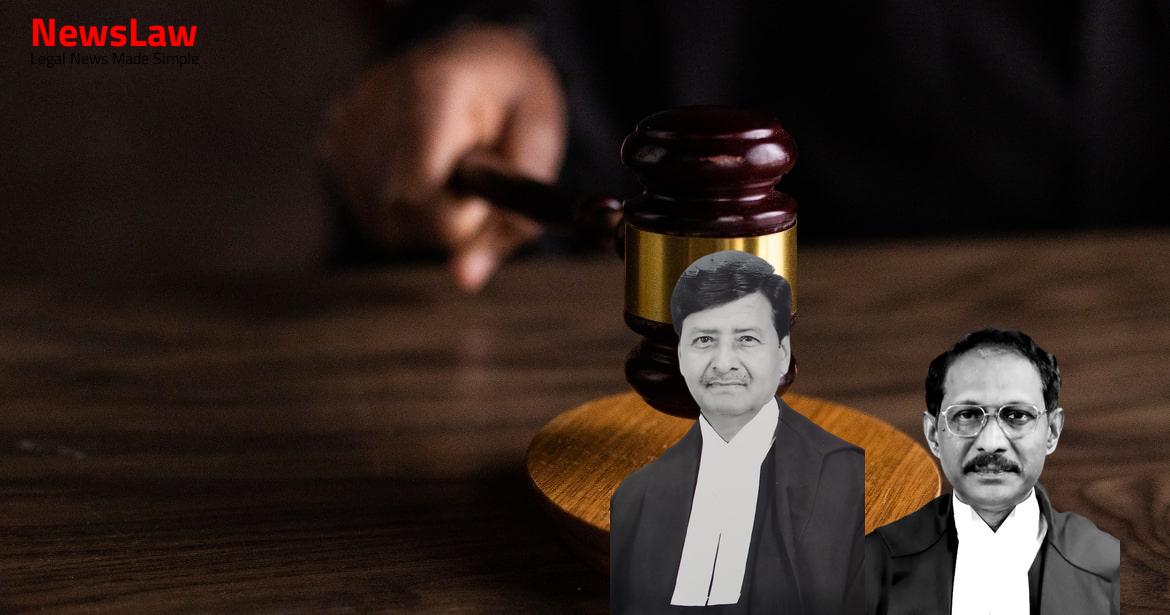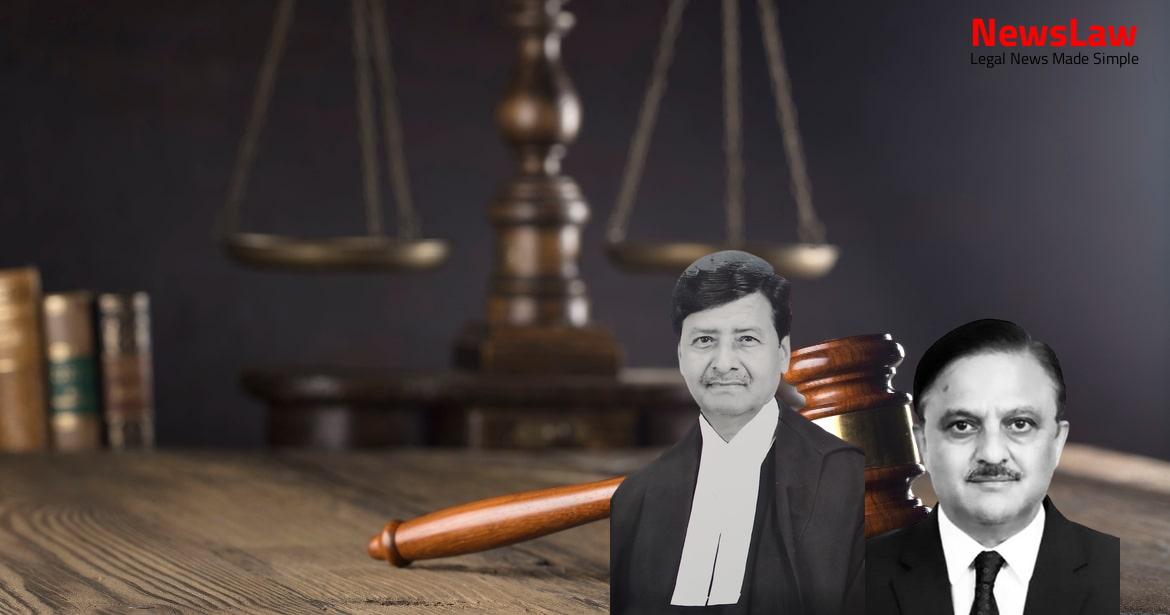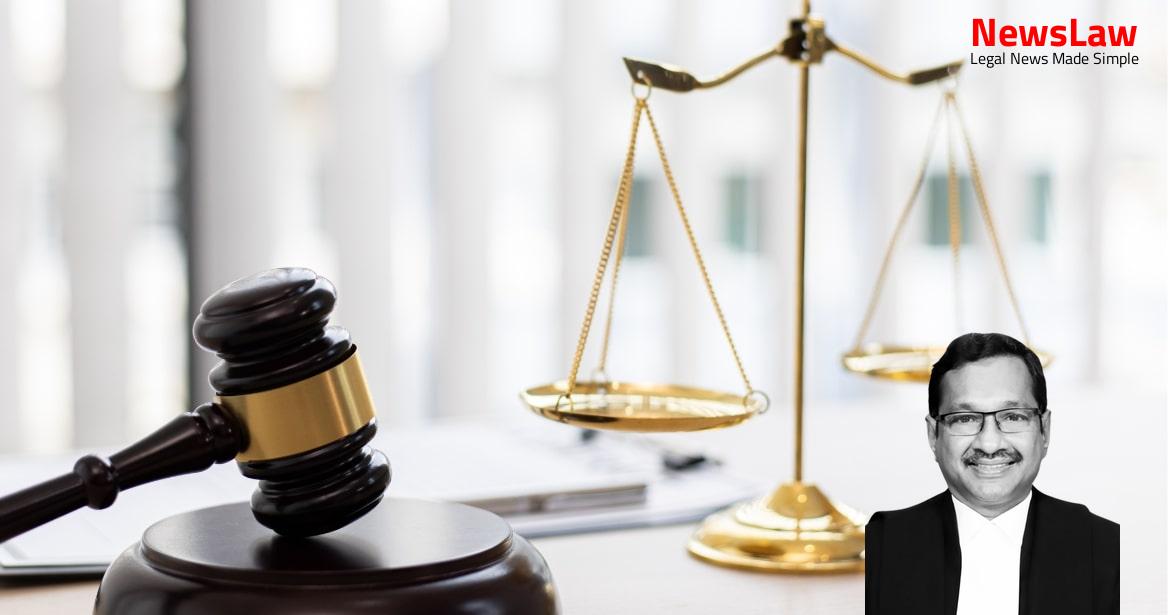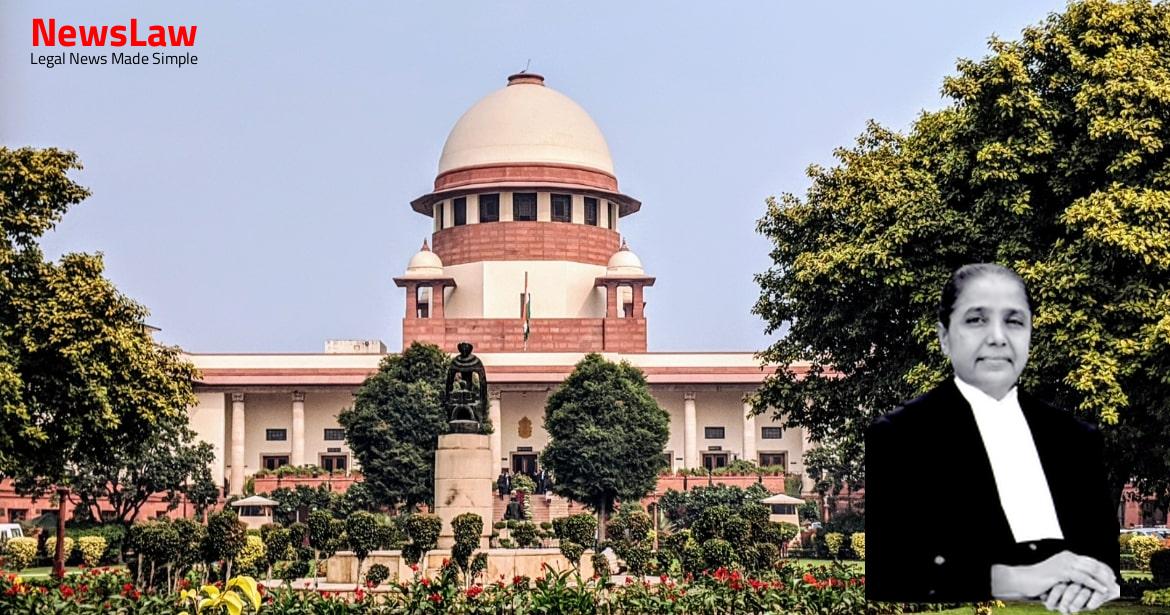Delving into a recent legal case where the court delves into the complexities of unjust detention and compensation. The court’s meticulous legal analysis on extended imprisonment and the entitlement to compensation sheds light on fundamental rights violations. Stay tuned for a detailed exploration of the legal intricacies in this case.
Facts
- The appellant had undergone imprisonment for a total of 10 years 03 months and 16 days, excluding remission periods.
- Despite completing the full sentence as per the judgment, the appellant was not released from custody.
- The High Court confirmed the conviction but reduced the sentence to 7 years of rigorous imprisonment under Section 376 IPC.
- The appellant was ordered to compensate the victim with Rs. 15,000 as per Section 357 of Cr.P.C.
- The appellant’s custody exceeding the judicial custody period was questioned, leading to a probe by the court.
- The detention of the appellant after his acquittal was found to be unjustified.
- The Superintendent of Central Jail filed an affidavit explaining the justification for the extended custody, which was not accepted by the court.
- The court viewed the justification as inadequate and maintained its stance on the appellant’s release and compensation to the victim.
- The appellant’s release was eventually ordered after serving the full sentence as per the judgment.
- Counsel for the State to file an affidavit explaining why the petitioner was detained in custody beyond the period of judicial custody
- State to collect data from all over the State regarding similar incidents and furnish a report to the Court
- Copy of the order to be sent to the Secretary, State Legal Services Authority, Chhattisgarh for necessary action and compliance report
Also Read: Admission Deadline Adherence in Medical Courses
Arguments
- Counsel for the appellant argued that the appellant was detained illegally beyond the permissible period of imprisonment.
- The contention was based on the fact that the appellant’s detention exceeded the legally allowed timeframe.
- The counsel’s argument focused on the illegality of the extended detention of the appellant.
Also Read: From Nominee to Disqualified: Supreme Court Scrutinizes Age Evidence, Declares Election Invalid
Analysis
- In the case of Ambica Quarry Works Vs. State of Gujarat (AIR 1987 SC 1073), the court emphasized that all interpretations should serve the intention of the Act.
- A precedent from A.R. Antulay V. R.S. Nayak [(1988) 2 SCC 602] was cited to show that the power to provide compensation can be derived from Article 142 of the Constitution of India or inherent powers as guardian of the Constitution.
- The central issue being examined is whether the appellant is entitled to compensation for being unlawfully detained in prison beyond the period of the sentence, resulting in the deprivation of personal liberty.
- In the case of Rudul Sah, the Court expressed hope that the petitioner would still have the right to bring a suit for damages against the state and its officials, despite the compensation ordered by the Court.
- The compensation awarded is considered a temporary relief as the petitioner is not expected to be left without funds while pursuing further legal actions.
- The principle of generous interpretation is highlighted as relevant when interpreting any provision in a statute, especially when the authority under that provision can make just or proper orders.
- The affidavit dated 24.04.2022 feigned ignorance about the judgment of the High Court dated 19.07.2018.
- The appellant’s entitlement to remission is indisputable based on the Custody Certificate and Prison Rules.
- The appellant was kept in prison beyond the legal permissible period of incarceration despite knowledge of the appellate judgment.
- The power specified under clause (e) can be exercised only in specific rare cases.
- The deponent of the affidavit dated 24.04.2022 failed to comply with the judgment and release the appellant at the right time.
- The appellant’s sufferings due to illegal detention warrant compensation.
- The appellant’s case reveals a contumacious act on the part of the State Government officials.
- Considering the appellant’s youth and the long illegal imprisonment, compensation in monetary terms is needed.
- The violation of fundamental rights under Articles 19(d) and 21 of the Constitution of India due to extra, illegal detention justifies compensation for the appellant.
- Order granting compensation of Rs.7.5 Lakhs by the State
- State held vicariously liable for the act/omission of its officers
- State to have recourse against the erred officer(s)
- Appeal disposed with the above terms
- Pending applications disposed as well
Case Title: BHOLA KUMHAR Vs. THE STATE OF CHHATTISGARH (2022 INSC 535)
Case Number: Crl.A. No.-000937-000937 / 2022



